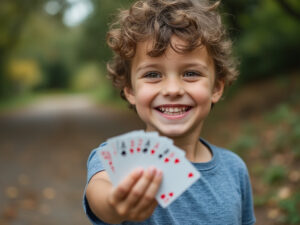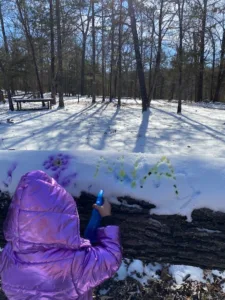
So, what exactly is Deschooling? Deschooling is like hitting the pause button after years of structured, traditional schooling. It’s a crucial phase that involves stepping away from the typical school routines and expectations. Think of it as a mental reset, allowing both parents and kids to shake off the conventional mindset and rediscover the joy of learning. This period is essential when transitioning into homeschooling because it creates space for a fresh start. It’s about letting go of the “school at home” mentality and embracing a more relaxed, flexible approach to education. Deschooling gives everyone a chance to breathe, de-stress, and pave the way for a personalized learning journey tailored to the unique needs and interests of each child.
If you’re thinking about transitioning from regular school to homeschool, then you might want to spend some time deschooling. You’ll likely need to change your mindset first and start looking at education differently. A lot of families will deschool as a way to process the trauma from a traditional school environment, especially if their child had a negative experience that caused a lot of trauma around learning. So embrace flexibility, and say goodbye to the schedules, tests and school bells that defined your child’s school day in the past. Instead, savor the freedom of a more personalized approach and get to know your child and their learning style without the chains of rules or curriculum for a little while.
Understanding Deschooling
Deschooling is saying, “Hey, there’s more than one way to learn and grow,” and giving ourselves permission to explore that vast landscape. Let’s step out of the familiar school-shaped box and into a realm where learning can take on all sorts of shapes and sizes.
Alright, buckle up for a mental makeover! Deprogramming from the structured school mindset is like rewiring your brain to think outside the classroom walls. It involves shaking off the automatic response to structure and schedules that traditional schooling ingrains in us. Think of it as hitting the Ctrl+Alt+Delete for your educational programming.
Now, the psychological aspects of deschooling dive deep into how this shift impacts both parents and kiddos. For parents, it might mean unlearning the idea that learning only happens in a set curriculum. It’s about letting go of the fear that without strict structure, chaos will reign.
For kids, it’s a chance to rediscover the joy of learning without the pressure of grades and deadlines. Deschooling is essentially a collective sigh of relief, allowing everyone to break free from the psychological chains of traditional education and venture into a more liberated, creative space.
Why Deschooling is Important:
Deschooling brings a bunch of practical perks to the table. First off, it’s a stress-reliever. Without the strict routines and expectations of traditional schooling, both parents and kids get a breather. No heavy backpacks of rules to carry around.
Secondly, it nurtures a genuine love for learning. When you ditch the textbooks-and-tests approach, education becomes more of an enjoyable exploration. Kids can ask questions, dig into subjects they find interesting, and actually have fun while learning. \
Now, let’s talk real-life wins. Families who’ve embraced deschooling often see a positive transformation. Kids, who might have been a bit meh about learning, start getting excited. They dive into topics they’re curious about, and parents get to witness this newfound enthusiasm. It’s not a fairy tale – these are the real success stories of families who waved goodbye to traditional schooling stress and found joy in learning together.
How Long Should Deschooling Take?
Let’s talk about the timeline of deschooling – no one-size-fits-all here. The duration is as flexible as the approach itself. It’s not a one-and-done deal. The length depends on various factors, like the age of the child, their personality, and their previous experience with traditional schooling. Younger kids might need a shorter deschooling stint, while older ones might take a bit more time to shake off the school routine.
Personality plays a role too – some kids are ready to dive into the next phase sooner, while others might need a more gradual transition. And here’s the real secret sauce: signs that tell you when deschooling has done its job.
Keep an eye out for a spark of curiosity, a newfound interest in learning, or maybe a desire to explore a particular subject. When you see these signs, it’s like a green light signaling that your child is ready to move on from the deschooling pit stop and hit the road towards more structured learning, tailored to their pace and interests.
Helpful Deschooling Activities:
Now, let’s talk about the fun part – activities that turn learning into an adventure. First up, think exploration and creativity. Encourage activities that let kids dive into their imagination, whether it’s building something with blocks, trying their hand at art, or inventing stories. Websites and apps offer a treasure trove of learning disguised as play, making education both engaging and effective. But wait, let’s not forget the great outdoors. Take learning beyond the four walls with outdoor activities and field trips. It could be a hike in the woods, a trip to the zoo, or simply exploring the backyard. Learning becomes an adventure, and the world becomes the textbook.
Resources for Deschooling:
These resources are like guidebooks written by experienced travelers who’ve navigated the deschooling terrain.
Online forums and support groups are the pit stops where parents gather, share experiences, and lend a virtual shoulder. Think of them as your digital support system. Join these communities to ask questions, swap stories, and find that reassurance only fellow travelers can provide.
All Things Homeschool, Deschool and Unschooling
Deschooling & Homeschooling Support
For those who prefer to listen and learn on the go, podcasts and videos are the perfect companions. Tune in to experts discussing deschooling – the why, the how, and the amazing outcomes.
Rethinking Self Directed Education
Deschooling, in a nutshell, is like the launching pad for a successful homeschooling journey. We’ve covered the need for a mental shift, the benefits of reducing stress and fostering a love for learning, and the variable nature of the deschooling timeline.
Practical activities and a toolkit of resources have been introduced, turning education into a creative exploration. Plus, we’ve mapped out the deschooling knowledge hub with blogs, forums, podcasts, and videos for continuous guidance.
Now, the grand finale: why does deschooling matter so much? It’s not just a pit stop; it’s a crucial step in transitioning to homeschooling. Deschooling sets the stage for a personalized, flexible learning experience tailored to each child’s unique needs and interests.
So, parents, as you embark on this journey, trust the process. It’s not just about schooling at home; it’s about creating an educational experience as individual as your child. So, take a deep breath, dive in, and let the deschooling journey unfold into the vibrant tapestry of your homeschooling adventure.












